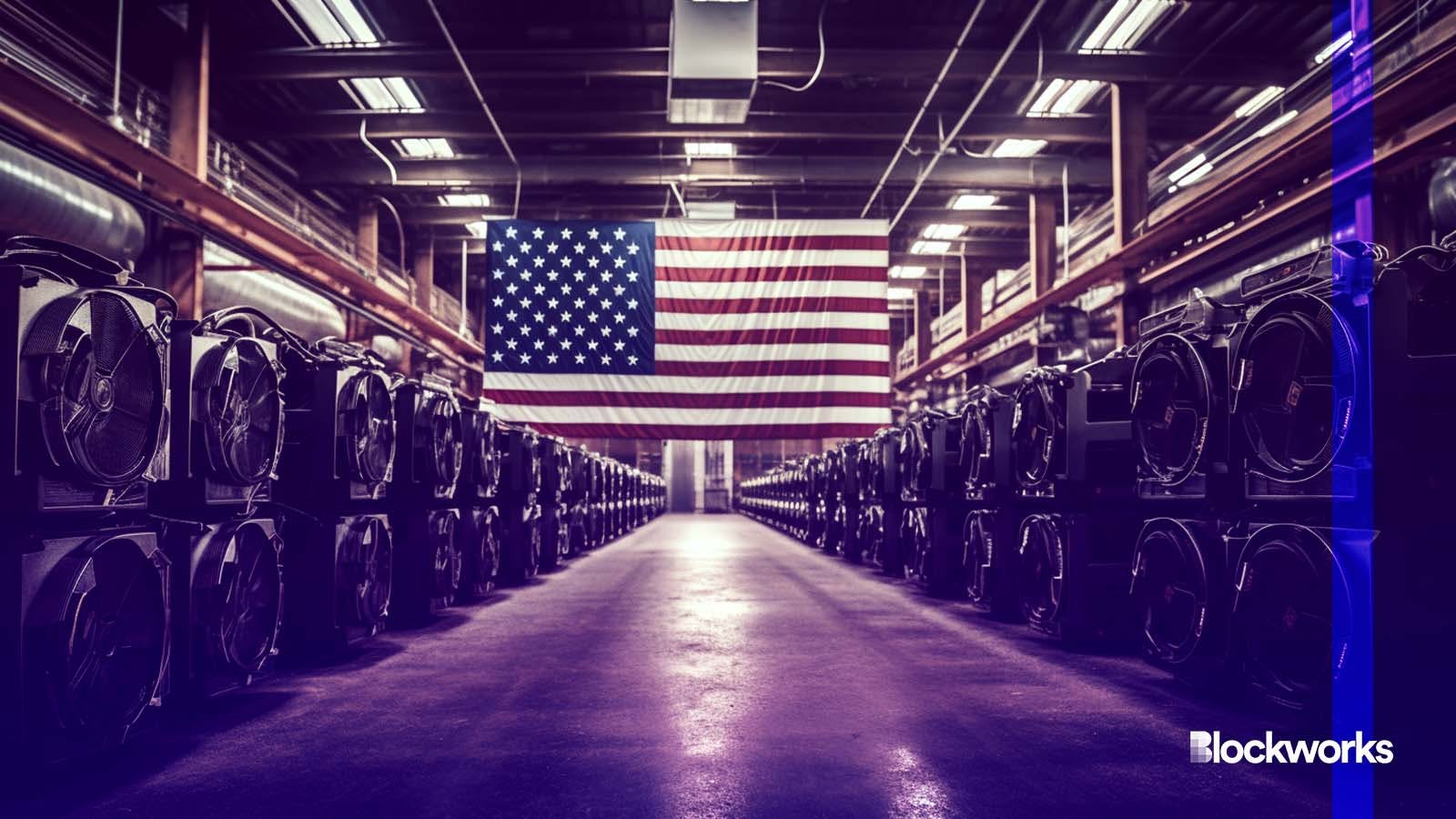Want to bolster American national security? Support bitcoin mining.
Domestic Bitcoin miners may be the next chapter in the fight to onshore advanced semiconductor manufacturing and engineering

Midjourney modified by Blockworks
Advanced semiconductors are at the heart of virtually all modern technology, from consumer electronics to advanced military systems.
Dependence on foreign — in many cases adversarial — semiconductor supply chains poses a significant risk. Onshoring the semiconductor industry is not just a matter of economic policy, but a strategic imperative for national security.
In the midst of the many rapid AI and cloud computing advancements, bitcoin mining plays a complementary (albeit less visible role) as an important driver for domestic chip demand. The burgeoning mining sector’s need for high-powered, efficient computing chips underscores and amplifies the call for onshoring chip manufacturing.
Look no further than the CHIPS Act for an example of how critical domestic chip manufacturing is to US national security. The legislation provides north of $52 billion to incentivize American chip manufacturing and targets America’s declining global share in semiconductor production, which has plummeted to just 12% from 37% three decades ago.
The unique demands of bitcoin mining for specialized chips not only align with but also enhance the technological strides made in AI and cloud computing. As bitcoin mining becomes further intertwined with our financial system, the demand for specialized chips does too.
By pushing the boundaries of chip efficiency and performance, bitcoin mining inadvertently fuels innovations that benefit the entire spectrum of data technologies.
A domestic pioneer
Enter Auradine: the Silicon Valley-based start-up shows how bitcoin mining can be a catalyst for advanced semiconductor manufacturing. By producing highly efficient ASICs domestically, they exemplify the potential for this sector to drive technological innovation and engineering prowess on American soil.
As Intel left the ASIC chip manufacturing market earlier this year, Auradine is one of the only major player left. And while one of the first to pioneer these innovative practices, Auradine’s success in producing high-efficiency ASICs domestically shows that onshoring semiconductor manufacturing is not just a concept, but a feasible reality.
Their achievements pave the way for other US companies to consider similar strategies, reinforcing the potential for a robust domestic chip production industry.
A call to policymakers
The strategic national security significance of bitcoin mining calls for a concerted policy effort. If they don’t already, US policymakers must recognize the sector’s vital role in national security and foster an environment where these pioneering efforts are viable.
Read more from our opinion section: Yes, crypto is ready for Wall Street
With the strategic value of bitcoin mining becoming increasingly clear, the onus is on US lawmakers to support legislation that fortifies the industry’s status as a key player in the nation’s strategic assets.
One example is Congressman Pete Sessions’ Congressional Resolution, which endorses proof-of-work, the consensus mechanism that is the backbone of Bitcoin. Doing so would be a first step in recognizing and tapping into the integral role of domestic bitcoin mining for national security.
Bitcoin mining has emerged as a pivotal player in bolstering US national security. Auradine’s pioneering role in reshoring chip manufacturing, driven by the demands of Bitcoin, is a clear indicator of its potential.
The time is now for policymakers to take notice and act. Supporting this sector is crucial, transcending economic benefits and directly impacting our national defense and technological leadership on the global stage.
Get the news in your inbox. Explore Blockworks newsletters:
- The Breakdown: Decoding crypto and the markets. Daily.
- 0xResearch: Alpha in your inbox. Think like an analyst.






